2 February 1943 of the year, 73 of the year ago, ended the Battle of Stalingrad
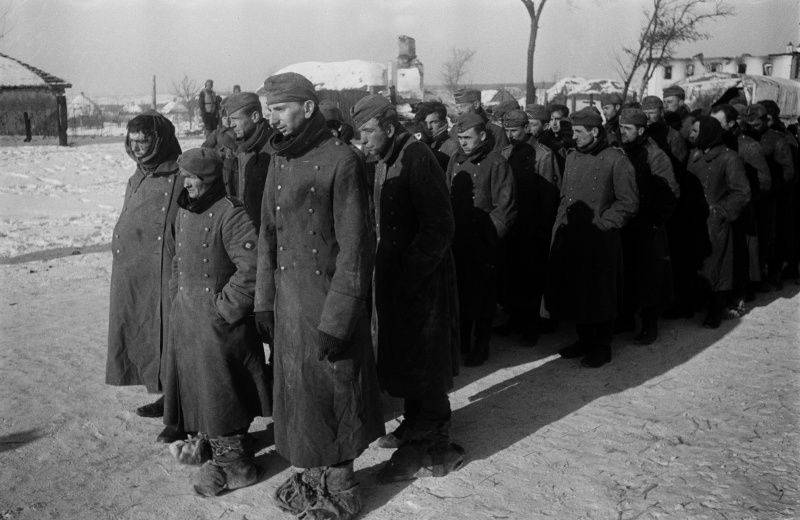
Mound. Sculpture of Motherland, silence. It is not easy, at the cost of the lives of many soldiers who died here, sometimes froze to death, this victory was given. And the infantry? Who can even for a moment imagine what it was like in the trenches, in the frozen houses and streets, smoking from frost and exploding projectiles, for which they fought to the death. It was not easy for everyone: both those who fought at Stalingrad and those who were on the outskirts of him. Seven Soviet divisions (over 210 thousand people) were concentrated around the encircled enemy troops, who were ordered not to let the Germans out of the ring. And although the forces and means of the enemy were superior to ours, patriotism, an irresistible desire to knock the fascists out of their native country had their effect. And the battle was won by the Soviet troops! From July to November 1942 alone, the Germans lost 700 thousands in the Battle of Stalingrad. "Stalingrad nightmare" they called this battle.
From the very beginning of the foundation, this city had a difficult fate from the beginning because a fortress was built on the Tsaritsyn River, on a small island: the Russian borders were guarded from steppe nomads and all criminal people who wanted to attack and lead to full, kill all life .
Please note: April has become a kind of fateful month for this city. 2 April 1589, King Feodor issued a certificate authorizing the construction of the city and the fortress. According to the first census, there were 408 residents.
“And below Balikley 80's. on the Volga island Tsaritsyn; and the Tsarina's hand fell against the island in the Volga, and flowed from the river from the Don, the 90 versus miles. ” At the mouth of it in the city of Tsaritsyn there is a pier ”(extracts from the“ Journal of the Ministry of the Interior ”, 1853 year).
And 19 on April 1925, the city became known as Stalingrad.
An interesting fact is the creation of the German colony of Sarepta (renamed the village of Krasnoarmeysk in 1921), which the Russian tsar handed over 4173 tithes to 17170, by the beginning of the 19th century XNUMX tithes of land became already Russianized Germans.
The city became one of the most beautiful and richest: oil plants, one of the largest ports, from where cargo and passenger ships were sent to many regions of the country. This city resembled a breathable, fragrant loaf, over which people worked day and night. Here, in addition to the industrial (strongest) core, a powerful social sphere was created: artisanal and ordinary schools, medical institutions, opened almost every year.
During the two years of the Civil War, the battles for Tsaritsyn were fierce. But after the war, the city of its strategic industrial socialist initiatives did not lose, but multiplied: new productions were opened, the famous Stalingrad factory earned, which became one of the main strongholds of resistance to German troops, which occupied a huge territory in the middle of 1942.
Stalingrad divided the war in Russia into “before” and “after”. This word became like a prayer because it was pronounced with that ineffable sense of secret pride and admiration for many years, it echoed in the stories of our aged grandmothers and now, remembering, the stories of my relatives also perceive this victory as my personal, blood feud. What happened many years ago was not just some kind of another military operation, but what entered into the soul and heart, was stuck, merged forever and snowy winters appeared before my eyes. They were scary. Snowdrifts were such that the doors of the houses could not be opened. And the frosts were fierce, unlike today's. Everything then was against the Germans. And even Russian frosts. And even though some foreign historians put this fact at the center of it, they say, the Russians helped win the frost. But these are just “excuses.”
The name "Stalingrad" has become a holy word. In particular, one can come across statements that “that the Kazan Icon of the Mother of God always stood on the right bank of the Volga among the Soviet troops, prayers and memorial services were served before it. In the burning Stalingrad, one of the few surviving buildings was the church in honor of the Kazan Icon of the Mother of God with the chapel of St. Sergius of Radonezh, which (according to the stories of front-line soldiers) the army commander 62-1 VI visited several times during the battles. Chuikov. According to another version, he began to visit Orthodox churches after the Battle of Stalingrad (data from S. Kulichkin’s article “Stalingrad. On the 60 Anniversary of the Battle of Stalingrad”).
The stories “about the heavenly appearance of the Mother of God in the fire column 11 in November 1942 to the Soviet troops” (data from D. Pivovarchuk’s article “On the appearance of the Most Holy Mother of God in Stalingrad 11 in November 1942”) are widespread. It was also told that before the offensive of the Soviet troops in the Battle of Stalingrad, a prayer service was held before the icon of the Kazan Mother of God. The icon was supposedly brought to the most difficult sectors of the front, where there were critical situations, to the places where the offensive was being prepared. The priesthood served as prayers, the soldiers sprinkled holy water. However, according to the testimony of the participants of the Battle of Stalingrad, there was no prayer before the start of the battle. Front-line workers only noted that "in all the remaining Orthodox churches, the clergy offered prayers for the victory of the Red Army" (data from N. Kaverin's article "Orthodox" myths about the Great Patriotic War. The Holy Fire magazine).
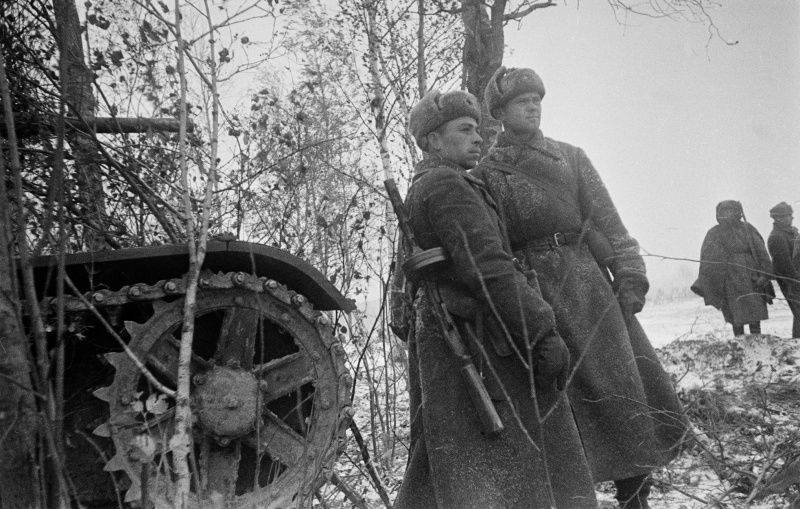
Yes, let it be so. But all together — the order “Not one step back,” and Pavlov, and the thousands of unknown soldiers who died, and famous commanders — became involved in the great moment of the real Victory, which is not just happening. After all, the long-awaited soldiers' and military happiness should have come sometime. They and we, their descendants, deserved it: to see tears of joy, hugs and loud cheers when the troops of the two fronts finally met after thousands of kilometers of a long journey.
And they went for a long time. Remember the first shots of the film "They Fought for the Motherland"? Steppe, dust and such native faces of our soldiers (the actors were able to convey all the subtleties of the nature of each of them). Then many will investigate it, say: “Ah, so if ...” But then no one knew anything. And even the vaunted German soldiers, who passed the whole of Europe with a victorious march, also did not know anything, but already then, in their triumphant march, German analysts were afraid of long distances, the inability to provide with everything necessary a rapidly expanding front. But they could not stop in their deadly race, some as early as November began to torment nightmares and painful forebodings. German officers write about all this quite frankly in their memoirs. One of them admitted that everything that happens reminds him of the time of the Napoleonic wars, and it seems that fate will befall us, the Germans, the same.
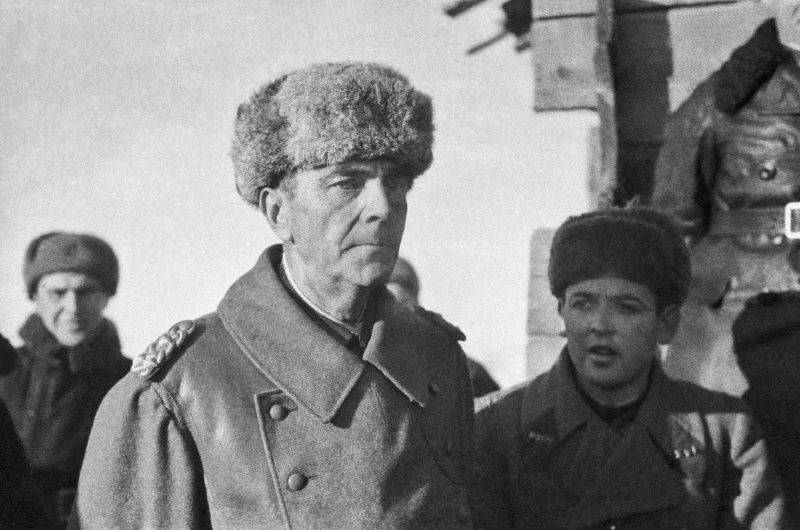
I look at the picture of Paulus who surrendered, and I understand how different we are. At the end of his life, he began to get involved in the work of Chekhov and praise Soviet soldiers, but were these words sincere? I think he could not survive the February tragedy. February was a fateful month for him: February 3 of the year 1943 in Germany was declared a general mourning for Stalingrad, and February 1 of 1957 of Paulus was gone. He spent the rest of his days in Dresden, in a villa, without sharing the fate of his captive soldiers.
And he could not, and no one else, fully understand the basics of the Russian warrior’s perseverance. Therefore, maybe they lived more than defeated Paulus.
Yakov Pavlov, who became the personification of perseverance and courage in defending a four-story building on Penza Street, died in 1981, managing to defend not only his stronghold, but also to recreate a peaceful life after the war, to become a people's deputy and solve many problems of his countrymen. Paulus, as his loved ones recall, never smiled. And look at the photo of Pavlov! His fellow soldiers always spoke of him as a very radiant man, there was in him some inexhaustible joy of life, strength of spirit. Perhaps you should not compare them, Pavlova and Paulus, but they became symbols of the Battle of Stalingrad. One is a symbol of victory, the second is a symbol of defeat.
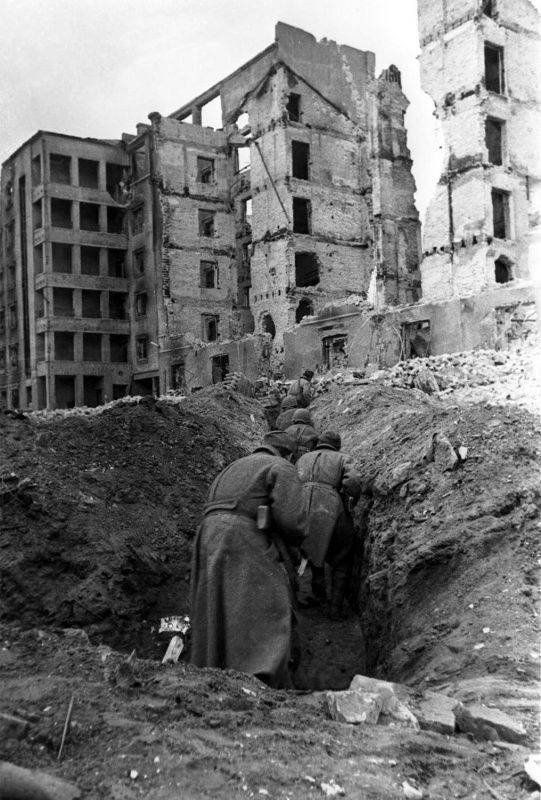
Pavlov’s house had an unusual green color for that time, the fate of the architect who built it was tragic: he died under the bombing of Stalingrad. But his handiwork remained and continued to perform extremely important defensive functions in the system of the belligerent regiment and the 13 Guards Division.
And Yakov Fedotovich Pavlov will have more victories, as evidenced by his award lists, published on the website "The feat of the people." Called to the front by the Valdai District Military Commissariat of the Leningrad Region, he thought he was following the blockade of Leningrad, which was practically together with the Battle of Stalingrad. And again about amazing coincidences: Pavlov was born in a village called Krestovaya.
Yes, historical the justice is such that it should be especially noted that Lieutenant Ivan Filippovich Afanasyev from October 2, 1942 led a group of defenders of the house. But Pavlov, nevertheless, became the symbol of this house, which, according to the award documents, together with his department, “September 18, 1942 attacked an important house and occupied it. The enemy counterattacked these positions several times, hit direct fire from tankbut could not break the resistance of our fighters. " On all staff maps there was a designation - “Pavlov’s House”.
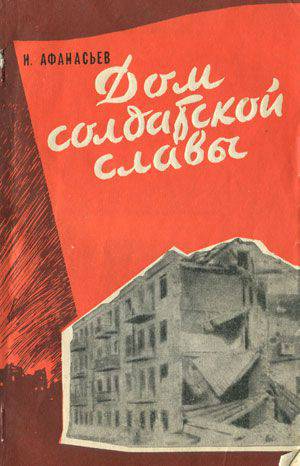
Ivan Afanasyev, already blind, wrote the book “House of Soldiers' Glory”, in 1970, the book was out of print. Here is how he writes about the first meeting with Pavlov:
“Leaving the fighters on the staircase, Ravens and I went down the stairs.
We were met by a short, slim sergeant in a dandy brown Kuban and a faded dusty tunic.
“The squad leader is Sergeant Pavlov,” he reported dashingly.
- We will be familiar, - I called my last name and explained why we arrived.
- It's good. And we, therefore, return to the company?
I caught a shade of bewilderment in this question: they say, how is it that they occupied the house, and now others are ready to go?
“No, Sergeant,” I reassured Pavlova, “we will defend the house together.”
- So that's great! We have been waiting for help for a long time. Domina is what, and there are only four of us. Now it will be more fun.
I introduced Pavlov to Voronov and Ramazanov, ordered the foreman to feed the soldiers, and then immediately return to the company with the wounded Iurmatov. Pavlova asked to show us the location of the basements and the upper floors. “Voronov and Ramazanov went with us.”
58 days held on defense. They stood shoulder to shoulder and would never have thought then that they could be divided in favor of propaganda. And it doesn’t matter now! Every day the Germans carried out attacks, but they were unsuccessful. The house stood. Soldiers stood to death. And - survived. And they drove the German.
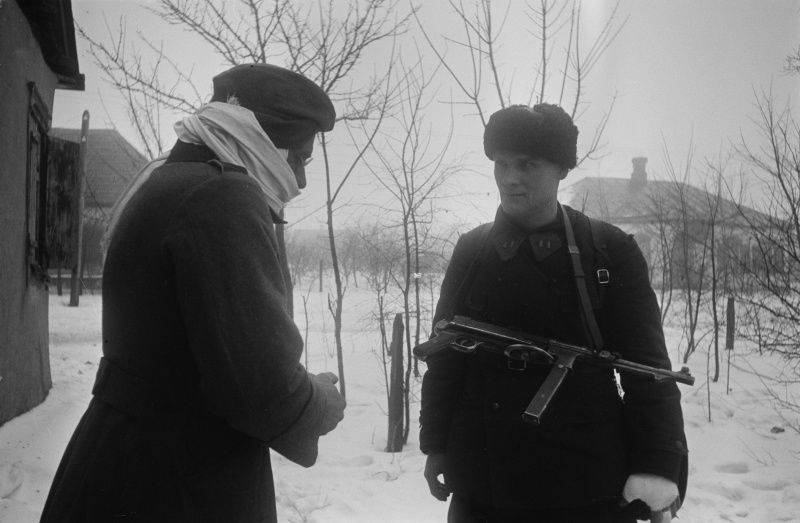
I, Anatoly Ivanovich Aseev, a native of the city of Morozovsk (born in 1929 year), began to feel and understand the autumn of 1941 year, when I was in the sixth grade of school №2 named after Voroshilov. In memory, some bright and at the same time the most tragic fragments remained. Not far from the school, a small-caliber anti-aircraft gun was installed, which bombarded German reconnaissance aircraft flying high from Rostov-on-Don towards Stalingrad. In July, 1942, we, the students, were sent to the field, weeding cereals. Suddenly, several enemy aircraft appeared over the city. When they started dropping bombs down, the elevator and station buildings caught fire. In fright, we quickly returned home.
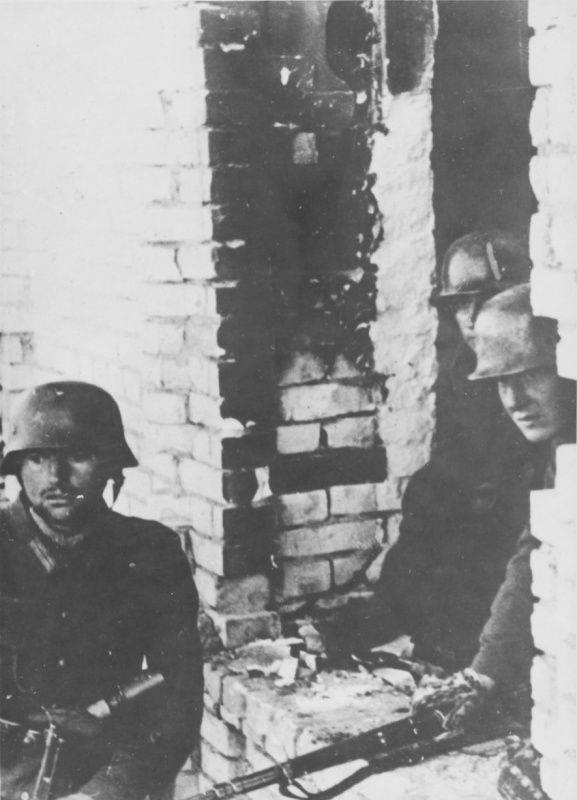
On Sovetskaya Street, at our dugout hut, during the regular bombardment, two German cars stopped, and right next to it, a shell that fell from above exploded and landed right in our house. I was hiding under the bed at that moment. I remember when I opened my eyes and saw smoke, dust, heard groans, the cries of the victims. In one instant, dad, younger brother, neighbor Valya Abramova and her younger sister were killed. Neighbor Nicholas lost his leg, my mother was left without toes. Fascist, who was nearby, also tore his lower limb.
It was hot, so all the corpses Nikolai Makeev, Vyacheslav Korneev, Alexander Vinokurov were immediately loaded into a wheelbarrow, taken to the cemetery and buried in the same pit.
After that, my mother and I repaired our dugout in which we lived until the end of the war. Around October, a Romanian general was killed in the city. He was organized a solemn funeral, escorting on the last journey with a brass band. German, Romanian and Italian soldiers took part in the funeral procession that passed along the main street of Morozovsk.
In memory - another fact. Once, on a frosty winter day, three fascists ran into our house, locked the door behind them, put their weapon, ordered no one to open and started to get drunk. Uninvited guests got so drunk that one of them began to dance on the table. In the morning, these people in an unattractive way, who pulled on women's kerchiefs, children's blankets, civilian shirts, in pillow caps on their heads and shod in straw boots over shoes, who went where. It was those Nazis who escaped encirclement near Stalingrad. I doubt that they were able to return to their historic homeland, in Germany.
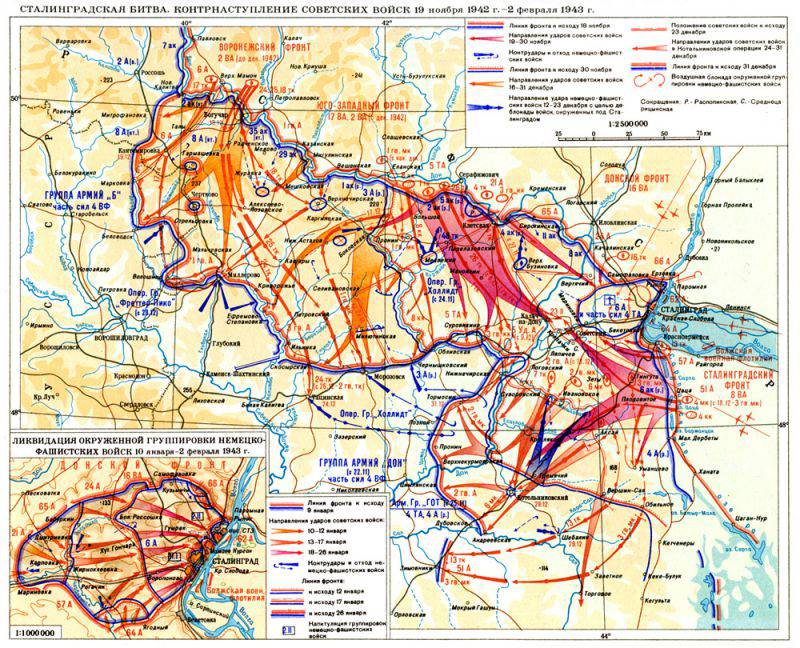
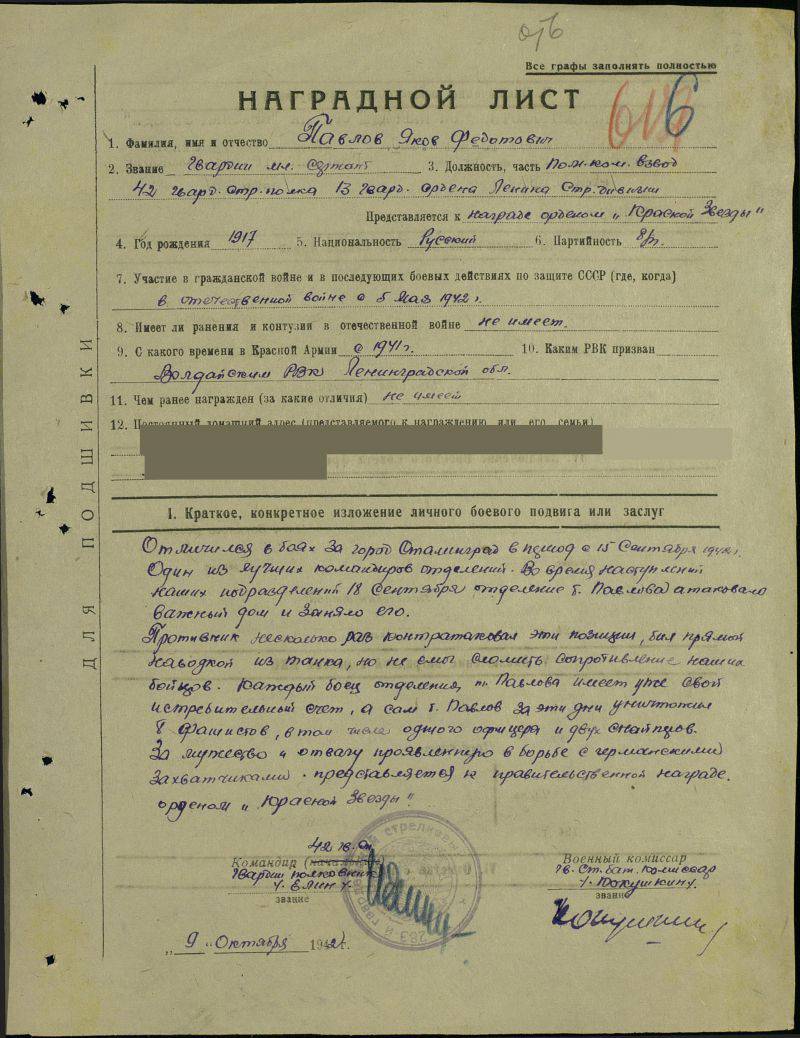
Information